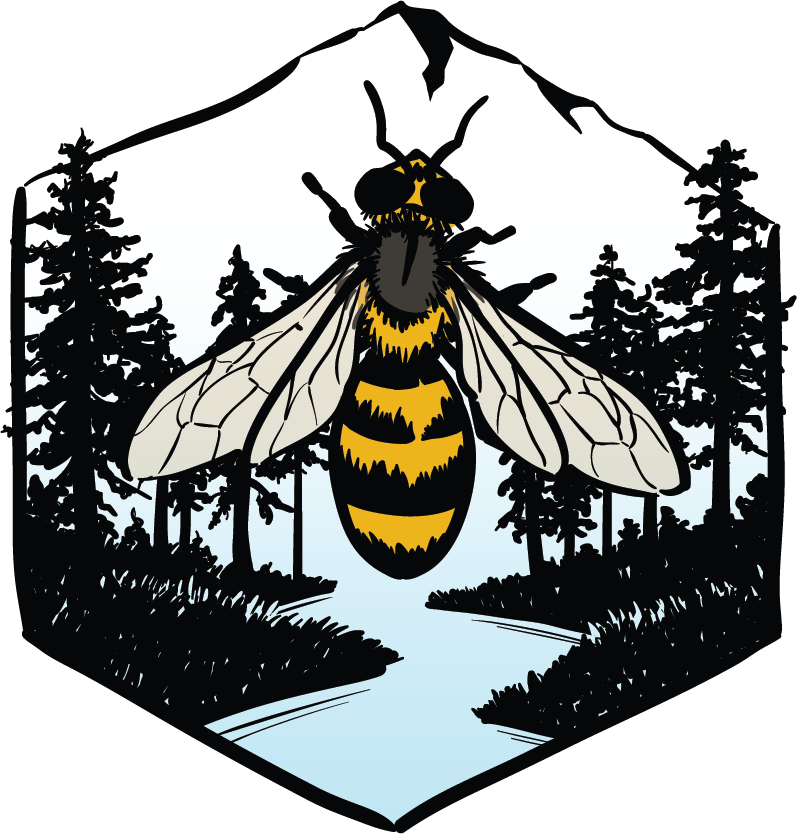1/26/15 WVBA Meeting Minutes
- General Minutes
- Richard welcomed everyone, including the Master Beekeepers who were in attendance, and the new beekeepers.
- He asked how everyone’s bees were:
- Most said pretty well
- There were lots of flying days this winter which could lead to starvation, so keep a close eye on them. You can pick up the back of the hive to test hive weight.
- Parking permits were required.
- Those who attend the meetings must fill out the Chemeketa Registration Form, because that is how we get the room for free. You only need to fill out your name, address, date of birth, and sign it at the bottom.
- Membership Applications are due!!
- Richard announced that WVBA was established in 1967, so this would be the 48th year of the club!
- There was an OPB Special, called Queen’s Garden, recently. The link will be on the website.
- Greg Long has an observation hive if anyone is interested.
- The Salem Public Library wants beekeepers at their Ask the Expert Day on February 28, 1-4pm. Erma Hamilton is heading that project up, so talk to her if you are interested.
- Earth Day is on Saturday, April 11, and there will be a celebration at Riverfront Park from 10:00am to 4:00pm, set up at 8:00am. Talk to Trevor Riches if you are interested.
- April 11 is also WVBA’s Bee Day.
- It was suggested that the WVBA get their own projector, so that the club does not have to rely on Chemeketa. Todd Bartlem has been looking into this, and passed around four different options. All were between $300-400.
- There was much debate back and forth as to whether a projector was necessary.
- Todd Bartlem made a motion for the board to choose a projector and vote on it.
- Gus Arzner seconded the motion
- The motion carried.
- With a projector, it could be used at the State Fair, Agfest, etc.
- Richard would be in charge of moving it back and forth.
- Patricia briefly went over the financial statement for this past year.
- The Linn-Benton Beekeepers will be placing orders for deep/western boxes, so email them if you are interested. They are going to get them from a person in Washington. info@LBBA.US or TIM@LBBA.US
- The order of equipment from Mann Lake through Todd is in.
- The swarm list is now online. Sign up with your name, phone #, and area that you would be willing to collect swarms from. People with swarms can then go online and do the calling themselves.
- Elections
- No other nominations
- President: Richard Farrier
- Vice-President: Mona Kanner
- Treasurer: Laura Evans
- Secretary: Emily Cross
- Bee Lackner – Plants Abuzz (Ruhl Bee Supply)
- There is a close partnership between bees and plants
- Bees need the nectar (carbohydrates) and pollen (protein) from the plants.
- Plants need to be pollinated by the bees.
- Pollen is highly nutritious, and turned into bee bread, which is essential for raising bee brood.
- Diversity in pollen colors means diversity in plant that they collected from, which is really important.
- Nectar is turned into honey.
- It is stored in the honey stomach of the bee and then carried back to the hive. Sometimes they pass the honey around through many bees’ stomachs, and it collects healthy enzymes.
- Then put into the cells and the water is evaporated from the nectar.
- Flower shape is also important.
- Bees cannot get the nectar from some flower because they cannot get inside them.
- Tubular flowers are usually harder for the bees.
- Sometimes, mason bees will chew a hole in the outside of a flower and the bees can use this to get to the honey.
- Bee Vision
- They do not see red, but they do see ultraviolet.
- Many flowers direct the bee to the center of the flower using the colors.
- Diversity
- Colonies are stronger if they can forage from a diverse set of plants.
- Diversity in crops, though, is in decline.
- What You Can Do and Selecting Bee Plants
- Plant bee-friendly flowers
- Grow more food.
- Brassica (mustard plants) are very good if you let them flower.
- Plant cover crops that are good for the bees.
- Hedgerows are beneficial to bees because flowering weeds often grow in and around them.
- Plant native plants
- Spread the word and encourage farmers to do the same!
- Choose heirloom varieties
- Simpler blooms
- Plant flowers so that they bloom throughout the season
- Beware pesticide usage
- Watch what bees visit, and plant more of that.
- Annuals that are helpful for bees – (*means that only some varieties are beneficial)
- Borage
- Buckwheat
- Crimson Clover
- Sunflower*
- Bachelor Buttons
- Alfalfa
- Poppies*
- Phacelia
- Perennials that are helpful for bees – (*means that only some varieties are beneficial)
- Cinothis
- Crocus
- Hawthorne*
- Cane berries
- Roses*
- Veggies
- Milkweed
- Oregano
- Chaste berry (vitex)
- Thyme
- Lavender*
- Fireweed
- Clover
- Fruit trees
- Rosemary
- Oregon grape
- Foxglove
- Get involved
- Educate people
- Join your local bee group
- Beeleaf – beeleaf.buzz
- If you want bulk seeds, contact Silver Falls Seed Company
- There is a close partnership between bees and plants
